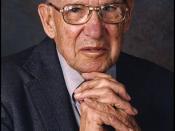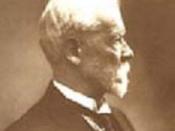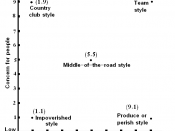The field of management has been devoted much of studies and researches since the beginning of the twenty-first century. From the classical management theory to the professionalisation of management, from the emergence of managerial hierarchies to the inter-professional competition, however, the development of management studies has for a long time not been easy to answer the basic question, 'What do managers do?' Controversy always lies in the clashes of the view of 'managers as rational actors' or 'bounded rational actors', and 'managers as cultural icons' view. Based on these perspectives, arguments have also been developed over the issue of how important the managerial leadership is for the running of effective organisations. But it seems to be clear that, without a proper answer to these questions, how to design planning or information systems for managers, or even how to improve the practice of management, will be a myth. The answer provided by Drucker states that "The manager is the dynamic, life-giving element in every business.
Without his leadership 'the resources of production' remain resources and never become production. In a competitive economy, above all, the quality and performance of the managers determine the success of a business, indeed they determine its survival. For the quality and performance of its managers is the only effective advantage an enterprise in a competitive economy can have." (Drucker, 1995, 13). This famous 'definition' has, to a certain extent, outlined the general characteristics of modern managers. By this definition, a manager can be regarded as someone who is assigned a position of leadership in an organisation, as a rational tool to embody and carry out the central tasks of the organisations, hence to secure the organisation's desired goals. This thought gives the managers' perceived function a very 'honorary' comment, as Drucker also points out that: the...


